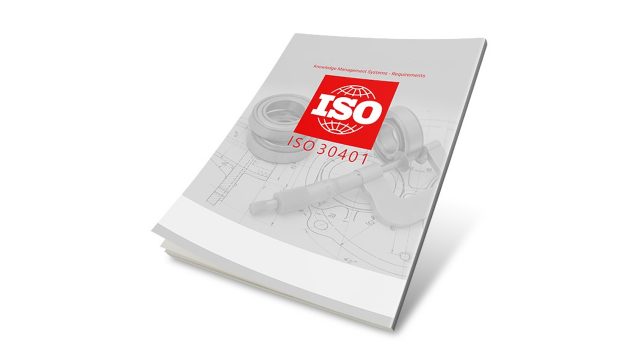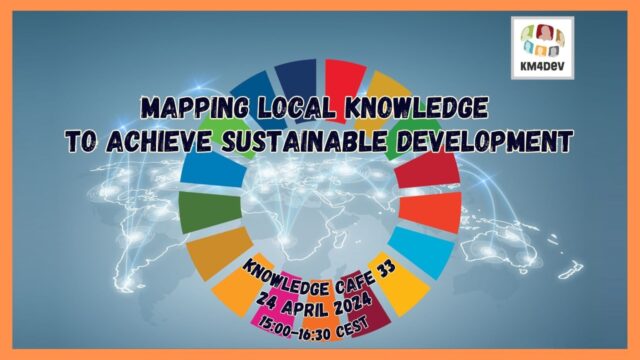MBRF webinar video: The role of knowledge management in achieving the UN Sustainable Development Goals
On 8 July 2020, the Mohammed bin Rashid Al Maktoum Foundation for Knowledge (MBRF) in cooperation with the British Standards Institute organised the webinar “The role of knowledge management in achieving the Sustainable Development Goals.”
The 2030 Agenda for Sustainable Development, adopted by all United Nations Member States in 2015, provides a shared blueprint for peace and prosperity for people and the planet. At its heart are the 17 Sustainable Development Goals (SDGs) that require an urgent call to action by leaders.
The webinar presentations highlight the internationally significant knowledge management leadership of MBRF and the UAE government. The video from the webinar is now available above, and a summary of the key messages from the presentations can be found below.
Program of speakers
| 00:00 – 06.04 | His Excellency Jamal bin Huwaireb, CEO, MBRF Knowledge Foundation |
| 06:12 – 18.54 | His Excellency Hussain Al Hammadi, Minister of Education, UAE |
| 19:00 – 24:18 | His Excellency Humaid Al Quatami, DG, Dubai Health Authority |
| 24:25 – 27:20 | Mr Mourad Wahba, Acting Associate Administrator of UNDP |
| 27.88 – 36:23 | Mr Ron Young, CEO, Knowledge Associates, Cambridge |
| 36:35 – 40:56 | Mr Sabet Chamie, Business Manager, BSI MEA |
| 41.00 | Panel Questions |
Summary of key messages
Mohammed bin Rashid Al Maktoum Knowledge Foundation, Dubai
The webinar was opened and driven by the leadership of His Excellency Jamal bin Huwaireb, CEO of the MBRF Knowledge Foundation, who emphasised the UN 2030 Agenda for Sustainable Development ‘Transforming our World’ as a blueprint for peace, prosperity for people, and the planet we live on, and that this requires our concerted efforts, not only countries but also between different institutions and organisations.
He stated that the MBRF Knowledge Foundation is the world’s first non-profit organisation to secure the ISO 30401:2018 certification for knowledge management.
He declared that MBRF, in cooperation with BSI and Knowledge Associates, aims to provide support to Institutions in the Arab Region and beyond, to raise awareness and the necessity to implement knowledge management, and to contribute to promoting collaboration and consolidating knowledge and innovation management across the region.
UAE Ministry of Education
His Excellency Hussain Al Hammadi, Minister of Education, UAE presented the KM principles are the cornerstone of UAE continuous efforts to develop a smart learning system. He emphasised that KM helps to gain experience and ideas and not just accessing information. KM promotes participatory education, deep thinking, analysis and knowledge sharing and KM provides Emirati students wider concepts of learning and knowledge, using simulation, virtual reality, 3D models and augmented reality.
The Ministry of Education is aiming to develop one of the best global models that promotes the sustainable development of a diversified UAE knowledge economy and needs to be a beacon of science, research and innovation.
Key points are:
- KM principles are the cornerstone of UAE continuous efforts to develop a smart learning system,
- KM helps to gain experience and ideas and not just accessing information,
- KM promotes participatory education, deep thinking, analysis and knowledge sharing,
- KM provides Emirati students wider concepts of learning and knowledge, using simulation, virtual reality, 3D models and augmented reality.
- The Ministry of Education is aiming to develop one of the best global models that promotes the sustainable development of a diversified UAE knowledge economy and needs to be a beacon of science, research and innovation.
Dubai Health Authority
His Excellency Humaid Al Quatami, Director General for the Dubai Health Authority gave a detailed account of the measures taken to combat and manage the COVID-19 crisis and the formation of a Supreme Committee of Crisis and Disaster Management, headed by His Highness Sheikh Mansoor bin Mohammed bin Rashid Al Maktoum, and unified healthcare between public and private hospitals.
United Nations Development Programme
Mr Mourad Wahba, Acting Associate Administrator of UNDP, Regional Bureau for Arab States, speaking from Los Angeles, California, speaking on the Knowledge Project as one of the world’s leading projects with focus and studying the integrative relationship on knowledge and development, stated that, as a development issue, this gains high prominence in the United Nations and the UNDP. He talked on the critical role of knowledge in rebuilding a better world, a post COVID world that leaves nobody behind, a constructive world that respects environment, the climate, and biodiversity.
He stressed that what is needed today is to aim higher and have a firmer will and political commitment to support the presence of knowledge and technology in our societies, to mobilise our resources, and build a healthier, safer, more just, more equal and prosperous world. “The crisis has undoubtedly proven that knowledge, technology and innovation tools are at the core of development efforts and building the future, which is at the core of the United Nations work.
Knowledge Associates Cambridge
Mr Ron Young, CEO of Knowledge Associates Cambridge proposed that, for those organisations working with the UN Sustainable Development Goals where, at least, healthcare and planetary health is at stake, that the best known knowledge management principles, education, standards and requirements, systems, platforms and tools, must become mandatory!
Even more so, and most importantly, he said that we must immediately better educate and develop our people, for future and more effective knowledge working, from primary schools to higher education, universities, and continually through our more knowledge driven organisations. He emphasised that ‘principles led’ standards are a game changer! He suggested that “all seventeen UN SDG’s are an interdependent part of the whole”
He discussed three key questions for the global knowledge economy:
- What is effective knowledge management in 2020?
- What is the ISO 30401:2018 Knowledge Management Standard?
- How can effective knowledge management contribute to the UN Sustainable Development Goals and 2030 Agenda?
BSI MEA
Sabet Chaime, Business Manager, Assurance, for BSI MEA, presented the origin and history of BSI and ISO Standards from 1901. He stressed that standards are the best way to execute something that gains the consensus of global experts and that ‘standards are knowledge and powerful tools that can help drive innovation. Standards can make people’s life safer, healthier and easier.
He outlined several of the world’s most implemented and renowned standards that contribute to the UN SDG’s, such as quality management, occupational health and safety, quality education, business continuity and the ISO 30401:2018 First International Knowledge Management Standard.






